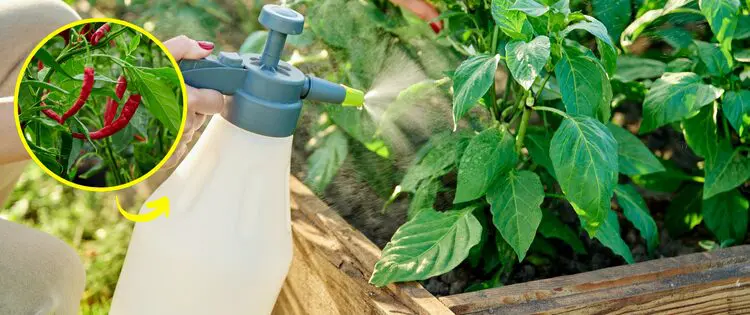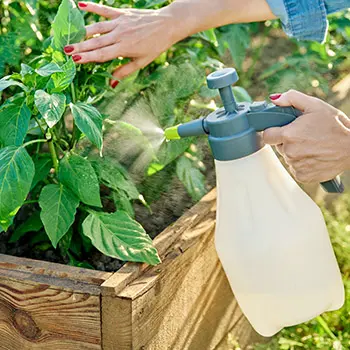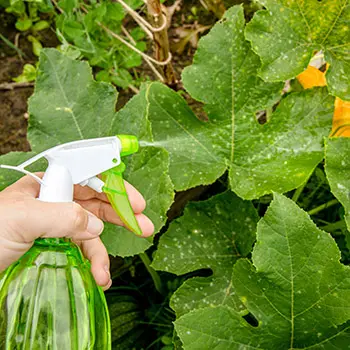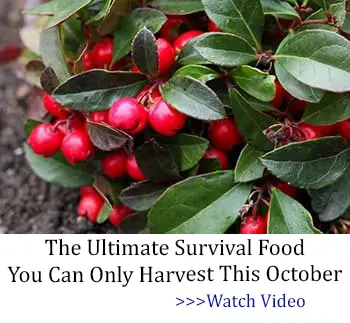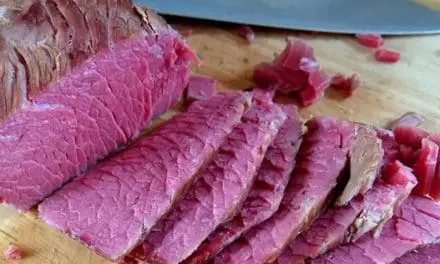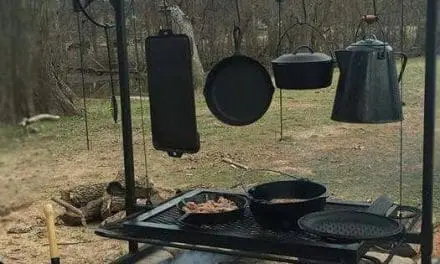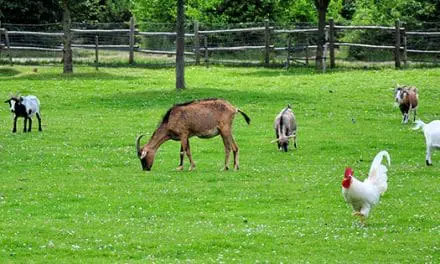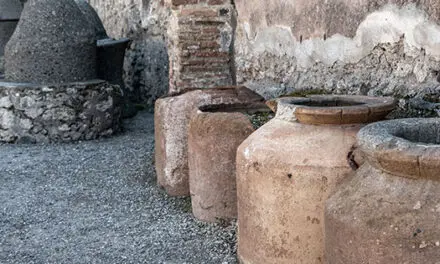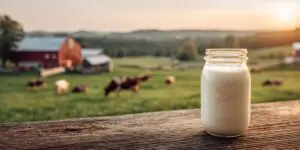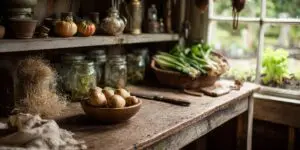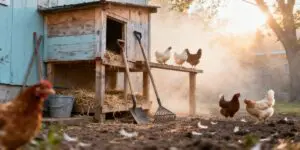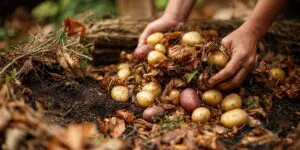Frustrated with countless DIY pest repellents that just don’t work? Or you might be concerned about the use of synthetic pesticides on food and are actively seeking natural alternatives. Then, try using hot peppers on your plants and vegetables.
Using hot peppers in your garden can offer a natural way to keep pests at bay and improve plant health, all while saving money. In this article, we’ll dive into why hot peppers are an excellent choice for your garden and how they can benefit your plants and vegetables.
Following are a few reasons for using hot pepper on your plants:
Natural Pest Deterrent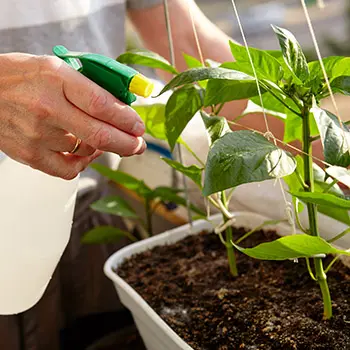
Hot peppers contain a potent compound called capsaicin, responsible for their spiciness. Capsaicin interferes with insects’ chemosensory mechanisms, preventing them from feeding on treated plants.
Capsaicin has been registered as a biochemical pesticide by the U.S. Environmental Protection Agency (EPA) and is widely used as a natural pest deterrent.
This compound causes a burning sensation in many animals, particularly mammals when it contacts their skin, mouth, or eyes. While it doesn’t harm the animals, it creates enough discomfort to keep pests like rodents, rabbits, and insects away from your plants.
Interestingly, capsaicin doesn’t affect birds, allowing them to safely eat seeds or fruits treated with it without any discomfort. This makes hot pepper an excellent natural option for keeping pests at bay while leaving birds unharmed.
Related: Plant These To Keep The Pests Away
Fungal Resistance
Capsaicin can stop the growth of different types of fungi by disrupting their cell membranes. Additionally, it changes the environment they need to thrive, making it less suitable for fungal growth.
In addition to capsaicin, hot peppers contain phenolic compounds, flavonoids, and antioxidants that help boost the plant’s disease resistance.
These natural compounds act as a protective shield by directly attacking harmful fungi or helping the plant’s immune system respond more effectively to infections.
Some research suggests that compounds in hot peppers can trigger a plant’s natural defense mechanisms, known as systemic acquired resistance (SAR) or induced systemic resistance (ISR), improving the plant’s ability to fight off pathogens.
Studies have also shown that wild chili peppers, like Capsicum chacoense, produce capsaicinoids (including capsaicin) that actively work against the growth of fungal pathogens, adding another layer of protection for plants.
Related: What Happens When You Use Backing Soda In Your Garden?
Enhances Plant Health
Here’s how hot pepper may help you plant:
- Improve Soil Health: When composted or used as organic fertilizers, hot peppers enrich the soil with nitrogen, potassium, and magnesium, promoting strong root development and healthy plant growth.
- Antioxidants and Vitamins: Hot peppers contain vitamin C, flavonoids, and antioxidants, which improve plant structure and overall health.
- Allelopathy: Some hot pepper varieties release chemicals that inhibit nearby weeds, allowing the main crop better access to nutrients, water, and sunlight.
Cost-Effective Solution
Using hot peppers as a natural pest deterrent or to enhance plant health is an affordable and eco-friendly option.
Compared to chemical pesticides and fungicides, hot pepper solutions are much cheaper and budget-friendly options.
You can easily make your own hot pepper spray at home or compost pepper plants to enrich your soil, saving money while still keeping your garden protected.
Unlike chemical pesticides, hot pepper sprays are harmless to pollinators like bees, which are essential for plant fertilization and fruit production. This makes it a cost-effective and sustainable choice for any gardener.
Related: Gardening Myths That Are Actually True
How To Make Hot Pepper Spray
Making hot pepper spray for your plants is easy and works great to keep pests away. Here’s how you can make it:
Ingredients:
- 10-12 hot peppers (e.g., cayenne, jalapeño, or habanero)
- 2 cups of water
- 1 tablespoon of dish soap (optional)
- 1 tablespoon of vegetable oil (optional)
- Strainer or cheesecloth
- Spray bottle
Instructions:
Here are step-by-step instructions for making hot pepper spray:
- Prepare the Peppers: Use fresh hot peppers or dried pepper flakes. Chop them into smaller pieces or crush them to release their capsaicin more easily.
- Boil the Peppers: Add the chopped or crushed peppers to 2 cups of water and bring the mixture to a boil. After boiling, remove the mixture from heat and steep for about 24 hours to make it more potent.
- Strain the Mixture: After steeping, strain the pepper-water mixture through a strainer or cheesecloth to remove any solid particles.
- Transfer to a Spray Bottle: Pour the solution into a spray bottle. Ensure the bottle is clean to avoid contamination, which could affect the potency of the spray.
- Application: Spray the solution directly around the base and leaves of your plants, particularly the underside, where insects tend to hide. Reapply every few days, especially after rain or heavy watering, as the spray may wash off.
Tips & Precautions
Before you get started preparing your hot pepper spray, make sure you follow these tips and precautions:
- Wear Gloves: Always wear gloves when making or using the spray to protect your skin from irritation. Hot peppers can burn if they get on your skin or in your eyes.
- Spray in the Morning or Evening: Apply the spray early or late in the evening to avoid burning the leaves in the hot sun.
- Store Safely: If you have extra, keep it in a cool, dark place and try to use it within a week.
- Be Careful Around Pets and Eyes: Keep the spray away from pets and children, and avoid touching your eyes after using it.
- Don’t Overdo It: Use the spray only when needed. Too much can stress your plants and cause damage.
Using hot pepper spray on your plants is a simple, natural way to keep pests away without harmful chemicals. It’s easy to make, environmentally friendly and can help protect your garden.
Remember to use it carefully, reapply as needed, and keep an eye on your plants to ensure they stay healthy. This DIY solution is a great tool for gardeners seeking a safer, greener pest control option.
What Happens If You Spread Coffee Grounds In Your Garden
If You See This Plant in Your Backyard, Burn It Immediately! (Video)
Strange Gardening Tips And Tricks That Really Work
15 Things You Should Teach Your Children That Can Save Their Lives

